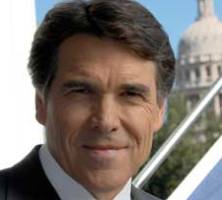Herman Cain’s controversial 9-9-9 plan has triggered a battle among GOP presidential contenders over which candidate can introduce fundamental tax reforms that will spark an economic resurgence.
On the campaign trail, Cain claims the mantle as the only GOP candidate who is willing to throw out the current tax code and start over. But increasingly, that no longer is the case.

Libertarian-leaning Ron Paul, for example, wants to get rid of not only the tax code but the Internal Revenue Service that administers it. Texas Gov. Rick Perry recently introduced a plan to let taxpayers and corporations either file under the current tax code or pay a flat tax rate of 20 percent.
Rep. Michele Bachmann and former House Speaker Newt Gingrich both want a flatter, broader tax code. Even Mitt Romney’s complex, 59-point plan would lower marginal rates and broaden the tax base. Among Romney’s proposals: eliminating taxes on capital gains, dividends, and interest for those with taxable incomes below $200,000.
Supply-side economists, naturally, are delighted by the GOP’s newfound commitment to pushing the flat-tax, which gets rid of loopholes and offers a rate that remains consistent regardless of income for taxpayers above the poverty level.
Editor’s Note: The IRS' Worst Nightmare -- How to Pay Zero Taxes.
A broader tax base helps lower rates. Supply-siders say that would reduce the incentive to manipulate the system while substantially reducing the estimated $480 billion that Americans spend each year to comply with the tax code. The result, they predict, would be an economic boom.
“There’s not one of the candidates we have running in this primary who would not change the tax codes dramatically in this direction,” Dr. Arthur B. Laffer, widely considered the father of supply-side economics, tells Newsmax. “And that makes me very proud of the Republican candidate base, to be honest with you.
“And I’m ashamed of the Democrats,” Laffer says, “because they used to be the party that opposed the Republican naysayers, the Barry Goldwaters and Bob Doles, who never saw a tax increase they didn’t love … Now, the Democrats have gone to the dark side, and we’ve got to bring them back!”
The GOP presidential contenders have watched as Cain rode the wave of his euphonious 9-9-9 plan to the top of the Republican field. Cain’s GOP rivals have praised him for offering a “bold plan,” while objecting to the viability of Cain’s specific proposals.

“Herman I love you, brother,”
Gov. Perry told Cain during the Oct. 18 debate in Las Vegas. “At the end of the week I’ll be laying out a plan. I’ll bump plans with you, brother, and we’ll see who has the best idea about how you get this country working again.”
Conservatives are especially worried about Cain’s support for a 9 percent national sales tax.
“If you could freeze this 9-9-9 in time, and keep the same rates, I would be strongly in favor of it,” Diana Furchtgott-Roth, former chief economist for the U.S. Department of Labor and chief of staff of President George W. Bush’s Council of Economic Advisers, tells Newsmax. “But you have to think, ‘How would this system work if your own worst enemy were running it?’
“European history shows that these national sales taxes are very easy to raise. It’s so tempting to raise it by half a percentage point, because they’re money machines,” she says.
But even those who disagree with the 9-9-9 credit Cain with pushing the GOP primary dialog in the direction of lower marginal taxes and a broader tax base.
“I’m glad Cain is thinking big on tax reform, that’s great,” says CATO senior tax policy analyst Chris Edwards. “But I think this is not the right way to go. The standard Dick Armey-Steve Forbes flat tax is a much better way to go.”
It was interesting that Edwards praised the Armey-Forbes proposal, because Armey serves as the chairman of the grass-roots conservative FreedomWorks organization. Earlier this week, FreedomWorks released a statement commenting on the GOP’s rising flat-tax fever, praising “bold fiscal conservatives like Rick Perry and Herman Cain, who have raised the broader issue of fundamental tax reform in the Republican presidential primary race.”
Said Armey, the former House Majority Leader: “I have long said that we’ll know Americans have finally beat Washington when we pass a flat tax and remove the loopholes, double standards and special interests that pollute the current tax code.”
He added: “The sweeping tea party victories in the November 2010 elections were proof that Americans are looking for bold change in Washington, and the resurgence of flat tax proposals are further evidence that the tea party is growing in strength.”
Politically, flattening the tax rate would offer a sharp contrast to the policies of President Barack Obama, who wants to shift more of the tax burden onto wealthier Americans. Currently, the wealthiest 10 percent of taxpayers account for 70 percent of all federal tax revenues.
Democrats believe they have the winning side of the argument politically, however, based on polls showing broad support for raising taxes on wealthier Americans. A spate of recent newspaper editorials has bashed the GOP’s flat-tax trend, saying it will only further exacerbate what studies show is a growing income disparity favoring wealthier citizens.
“The attractiveness of any flat-tax plan is extremely sensitive to the rate,” Bruce Bartlett, a former adviser to former President Ronald Reagan told the Washington Post. “Twenty percent is about the most you can get people to support. You get much above that and people figure they’re better off with the current system.”
Laffer predicts the sharp primary debate over taxes will ultimately redound to the GOP’s benefit.
Editor’s Note: The IRS' Worst Nightmare -- How to Pay Zero Taxes.
“We’ve got terrific candidates,” he tells Newsmax. “Each one so much better than Obama! And we need them to be trained on the battlefield, so that when it comes time to go against Obama, they’re well trained, they’re well-versed in the ways of expressing good economics.”
© 2026 Newsmax. All rights reserved.